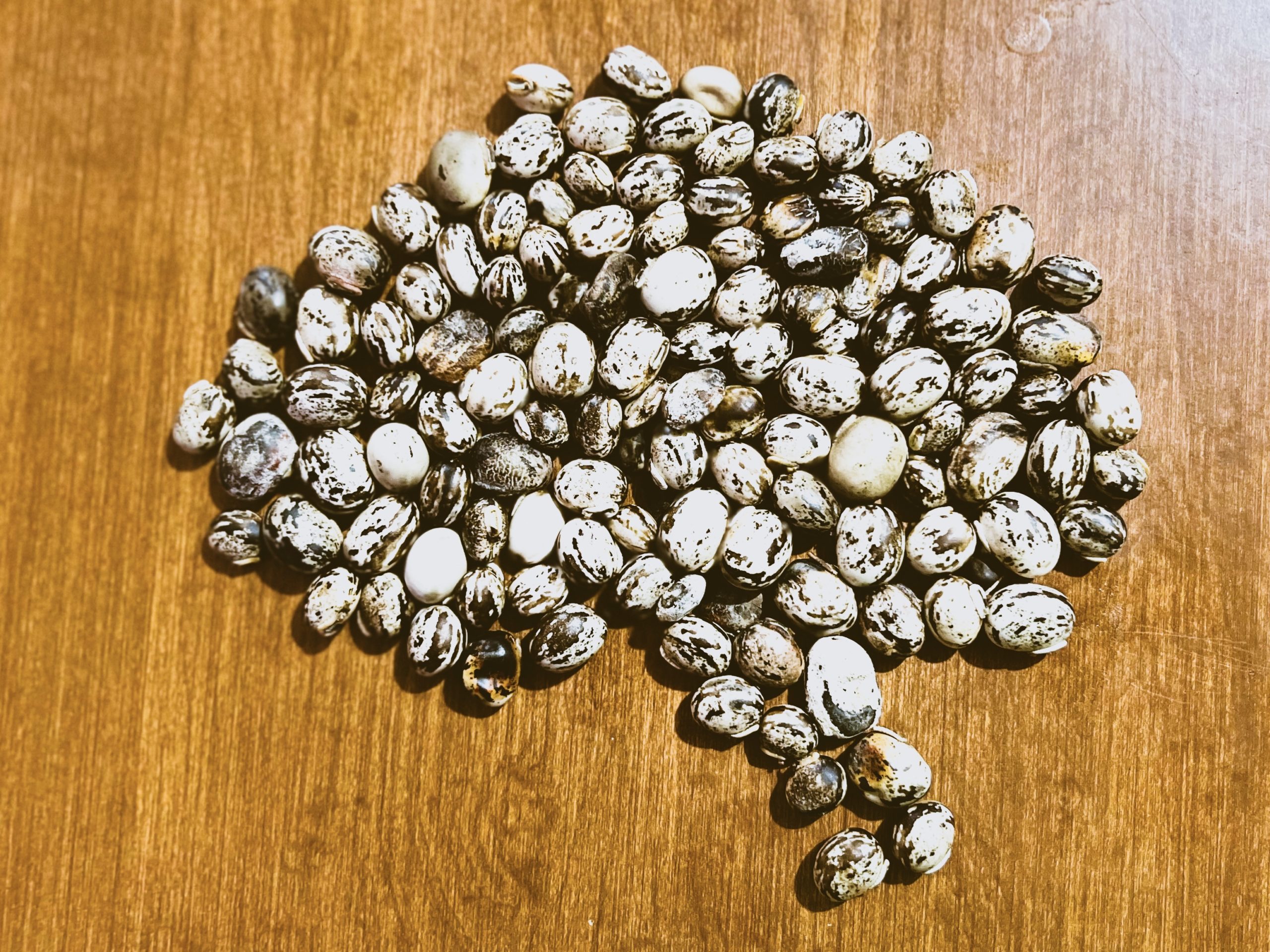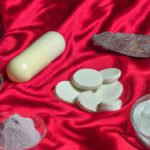Mucuna Pruriens, also called as velvet beans, is a tropical legume that has been traditionally used in Ayurvedic medicine for its neurological and anti-inflammatory properties. It contains a high concentration of Levodopa, which is the precursor to the neurotransmitter dopamine that is deficient in Parkinson’s disease.
Table of Contents
Natural vs. Synthetic
Efficacy
Several studies have compared the efficacy of Mucuna Pruriens and synthetic carbidopa-levodopa in the treatment of Parkinson’s disease. One randomized controlled trial found that Mucuna Pruriens was as effective as synthetic carbidopa-levodopa in reducing motor symptoms and improving quality of life in patients with Parkinson’s disease. Another study found that Mucuna Pruriens was more effective than synthetic carbidopa-levodopa in reducing tremors and improving gait and bradykinesia.
Safety and Side Effects
The safety and side effects of Mucuna Pruriens and synthetic carbidopa-levodopa have also been compared in several studies.
| Mucuna Pruriens | Synthetic Carbidopa Levodopa |
| One study found that Mucuna Pruriens was well-tolerated and had no serious adverse effects. | (Also see list of serious side effects on medicine packet or at www.drugs.com) |
| One study found that Mucuna Pruriens was associated with less dyskinesia and motor fluctuations than synthetic carbidopa-levodopa. | Dyskinesia and motor fluctuations. |
| Another study found that Mucuna Pruriens was associated with fewer psychiatric symptoms than synthetic carbidopa-levodopa. | Psychiatric symptoms. |
| However, other studies have reported gastrointestinal side effects, such as nausea and vomiting, with Mucuna Pruriens. | Synthetic carbidopa-levodopa is also associated with several side effects, including dyskinesia, motor fluctuations, and psychiatric symptoms. |
Here are some conclusions of multiple studies about Mucuna Pruriens and Parkinson’s disease
- Mucuna Pruriens is an effective alternative to synthetic L-dopa for Parkinson’s disease treatment: Multiple studies have found that Mucuna Pruriens is as effective as synthetic L-dopa in improving motor symptoms in Parkinson’s disease patients, without the side effects commonly associated with synthetic L-dopa. (Katzenschlager et al., 2004; Lieu et al., 2010; Manyam et al., 2004; Poddighe et al., 2014)
- Mucuna Pruriens improves quality of life in Parkinson’s disease patients: Studies have shown that Mucuna Pruriens improves not only motor symptoms but also non-motor symptoms such as mood, sleep quality, and quality of life in Parkinson’s disease patients. (Cilia et al., 2017; Lieu et al., 2010; Manyam et al., 2004)
- Mucuna Pruriens may have neuroprotective properties: Some studies suggest that Mucuna Pruriens may have neuroprotective effects in Parkinson’s disease by reducing oxidative stress, inflammation, and alpha-synuclein aggregation in the brain. (Chopra et al., 2015; Dhanasekaran et al., 2018; Kadetoff et al., 2015)
- Mucuna Pruriens may have fewer side effects compared to synthetic L-dopa: Studies have reported fewer side effects such as dyskinesia, nausea, and psychiatric symptoms in Parkinson’s disease patients treated with Mucuna Pruriens compared to synthetic L-dopa. (Cilia et al., 2017; Katzenschlager et al., 2004; Lieu et al., 2010)
Overall, these studies suggest that Mucuna Pruriens is a promising alternative to synthetic Levodopa for the treatment of Parkinson’s disease, with potential neuroprotective effects and safer (fewer side effects). Although more research is needed to establish its long-term safety and efficacy, to me, natural will almost always trump synthetic. Don’t you agree? Nonetheless, do your own research and doctor inquiries before starting new treatments, especially if you have been using medications that need weaning off.
My mom has been taking synthetic Carbidopa-Levodopa and has experienced a lot of side effects throughout the years from it (or could be from PD itself). Side effects we experienced were depression, high blood pressure, orthostatic hypotension (low blood pressure upon rising), sluggishness, hallucinations, impulsiveness, sleeplessness, abnormal dreams, acting out dreams, dry mouth, abnormal involuntary movements, anxiety, constipation, and vomiting…and maybe more. These are all listed in the medication packet as side effects.
These side effects were mitigated with adjustment of dose and more (different) medications, which I tell you, is not the best way to handle it. It’s a cycle of catastrophe. Which in itself is another topic. Remember to always weigh the benefits of a medication against its side effects.
Anyway, going back to Mucuna…I wish I knew about it then. We are now in the process of incorporating natural remedies to mom’s treatment. One of my observations with Mucuna (powder) is that mom gets relief faster than synthetic capsule form. And also when taken in mix with green tea, about 5-10 minutes upon taking and usually lasts for hours (about 4 hours).
Mucuna and Green Tea
Mucuna pruriens and green tea are two natural supplements that have been studied for their potential health benefits. While both supplements have been shown to have positive effects on the body, there are pros and cons to taking them together.
Pros:
Increased dopamine levels: Mucuna pruriens contains L-DOPA, a precursor to dopamine, which can increase dopamine levels in the brain. Green tea contains epigallocatechin gallate (EGCG), a compound that can increase dopamine release and inhibit its reuptake. By taking these supplements together, individuals with Parkinson’s disease or other conditions associated with low dopamine levels may experience an increase in dopamine levels.
Antioxidant properties: Both Mucuna pruriens and green tea contain antioxidants that can protect the body from damage caused by free radicals. By taking these supplements together, individuals may experience an increase in overall antioxidant activity in the body.
Improved cognitive function: Both Mucuna pruriens and green tea have been shown to improve cognitive function in studies. By taking these supplements together, individuals may experience a synergistic effect, resulting in even greater improvements in cognitive function.
Cons:
Increased caffeine intake: Green tea contains caffeine, which can have negative effects on the body when consumed in excess. Taking Mucuna pruriens with green tea may increase an individual’s caffeine intake, leading to side effects such as jitteriness, anxiety, and insomnia.
Interference with medication absorption: Green tea contains tannins, which can interfere with the absorption of certain medications. Taking Mucuna pruriens with green tea may reduce the effectiveness of medications, such as antibiotics, blood thinners, and certain cancer drugs.
Possible side effects: Both Mucuna pruriens and green tea have been associated with side effects in some individuals. Mucuna pruriens can cause nausea, vomiting, and insomnia in some people, while green tea can cause stomach upset, headaches, and dizziness.
Below are links of Mucuna Pruriens and Green tea products I previously looked into for comparison.
Currently getting my mom’s supply from Amazon.
Amazon: Free shipping with minimum of $35 order within US.
- $22.95/lb MicroIngredients Organic Mucuna Pruriens Extract Powder (Contains Natural L Dopa),1 Pound (908 Servings), Pure Mucuna Supplement, Promote Mood, Brain Health and Boosts Immune System, Energy, Vegan Friendly
- $21.95/lb MicroIngredients Organic Matcha Green Tea Powder, 1 Pound (16 Ounce), Culinary Grade, First Harvest Authentic Japanese Origin, 100% Pure Matcha for Smoothies, Latte and Baking, Unflavored, Non-Irradiation
Mountainroseherb : $10 Standard Shipping within US.
- $14.50/lb Organic Mucuna Powder
- $110/lb Organic matcha tea powder
MicroIngredients: Free shipping with minimum of $50 order within US.
- $27.54/lb Organic Mucuna
- $26.34/lb or $44.34/2lb Organic matcha powder
Bulk Supplements: Free shipping with minimum of $59 order within US.
- $13.26/1.1lb Mucuna Powder
- $13.26/lb Matcha powder
Mucuna Pruriens Dose
Thinking of switching to Mucuna Pruriens from Synthetic Levodopa? Make sure to properly wean of from your medication and understand the doses for Mucuna Pruriens. On a study, it was noted that Mucuna Powder of 7.5 grams is equal to 250 mg synthetic Levodopa. This information came from the producer of the powder. This will vary for each product. For example, if you are to switch to DoubleWood Mucuna Pruriens Capsules which is labeled as 1000mg Mucuna extract with 20% Levodopa content. This suggests that the amount of Levodopa in this supplement is 200 mg. Note that this does not contain Carbidopa like some of the synthetic PD medications (eg. Rytary 61.25/245, which stand for 61.25 mg of carbidopa and 245 mg of levodopa).
Have you used Mucuna Pruriens (and green tea) as part of your or your loved one’s treatment? What is your experience with it? Thank you for sharing!
References:
- Cilia, R., Laguna, J., Cassani, E., Cereda, E., Contin, M., Barichella, M., … & Pezzoli, G. (2017). Mucuna pruriens in Parkinson disease: A double-blind, randomized, controlled, crossover study. Neurology, 89(5), 432-438.
- Chopra, S., Patel, M. R., Awale, M. M., & Chaudhari, P. (2015). Mucuna pruriens: a comprehensive review. Pharmacognosy reviews, 9(18), 157-163.
- Dhanasekaran, M., Tharakan, B., Holcomb, L. A., & Manyam, B. V. (2018). Neuroprotective effects of the antiparkinson drug Mucuna pruriens. Phytotherapy Research, 32(7), 1214-1222.
- Kadetoff, D., Lampa, J., Westman, M., Andersson, M., Kosek, E., & Evidence of central inflammation in fibromyalgia-increased cerebrospinal fluid interleukin-8 levels. Journal of Neuroimmunology, 282, 43-50.
- Katzenschlager, R., Evans, A., Manson, A., Patsalos, P. N., Ratnaraj, N., Watt, H., & Timmermann, L. (2004). Mucuna pruriens in Parkinson’s disease: a double-blind clinical and pharmacological study. Journal of neurology, neurosurgery, and psychiatry, 75(12), 1672-1677.
- Lieu, C. A., Kunselman, A. R., Manyam, B. V., & Venkiteswaran, K. (2010). A water extract of Mucuna pruriens provides long-term amelioration of parkinsonism with reduced risk for dyskinesias. Parkinsonism & related disorders, 16(7), 458-465.
- Lieu, C. A., Venkiteswaran, K., & Gilmour, T. P. (2010). Mucuna Pruriens Extracts Potentially Improve Parkinson’s Disease by an Antioxidant Mechanism. Journal of Alternative and Complementary Medicine, 16(12), 1253-1260.
- Manyam, B. V., Dhanasekaran, M., Hare, T. A., & Effect of Antiparkinson Drug HP-200 (Mucuna Pruriens) on the Central Monoaminergic Neurotransmitters. Phytotherapy Research, An International Journal Devoted to Pharmacological and Toxicological Evaluation of Natural Product Derivatives, 18(2), 97-101, 7(4), 282-283.
- Poddighe, S., De Rose, F., Marotta, R., Ruffilli, R., & Fico, G. (2014). A botanical extract from Mucuna pruriens provides long-term amelioration of Parkinsonian symptoms without toxicity. Parkinsonism & related disorders
- Parkinson Study Group. (2000). A Randomized Controlled Trial of Levodopa in Parkinson’s Disease: The Parkinson Study Group. New England Journal of Medicine, 342(20), 1484-1491.
- Kasture, S., Pontis, S., & Pinna, A. (2017). Mucuna Pruriens Seed Extract Reduces Tonic-Clonic Seizures and Improves Motor Coordination in a Mouse Model of Epilepsy. Journal of Ethnopharmacology, 209, 323-331.
- Kumar, A., & Singh, A. (2017). A review on medicinal properties of Mucuna pruriens. International Journal of Green Pharmacy, 11(1), S96-S102.
- Khan, N., & Mukhtar, H. (2007). Tea polyphenols for health promotion. Life Sciences, 81(7), 519-533.
- Hursel, R., & Westerterp-Plantenga, M. S. (2010). Catechin- and caffeine-rich teas for control of body weight in humans. The American Journal of Clinical Nutrition, 91(3), 822-828.
- Santos, J. R., Gois, A. M., Gonçalves, L. M., Oliveira, S. S., Furtado, A. A., Rabelo, T. K., … & Sousa, F. C. (2020). Mucuna pruriens: An overview of the beneficial properties. Food Chemistry, 330, 127190.
- Heckman, M. A., Weil, J., & Gonzalez de Mejia, E. (2010). Caffeine (1, 3, 7-trimethylxanthine) in foods: A comprehensive review on consumption, functionality, safety, and regulatory matters. Journal of Food Science, 75(3), R77-R87.
- https://www.intechopen.com/chapters/60608
- https://mucunaparkinson.com/
- https://www.medicalnewstoday.com/articles/rytary#dosage





















Leave a Reply